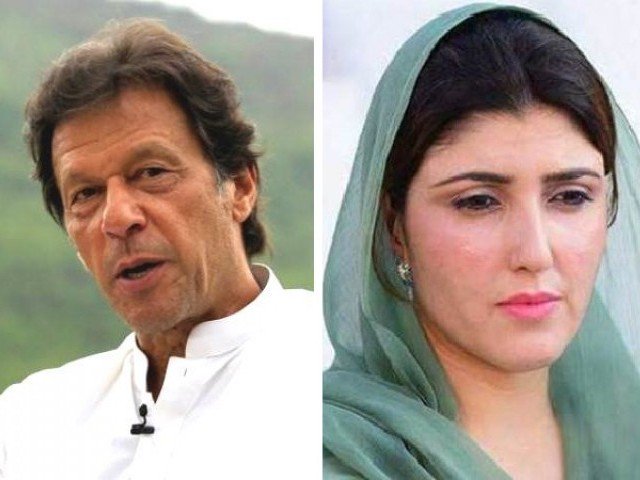News Analysis |
The Election Commission of Pakistan (ECP) rejected the reference filed by Chairman Pakistan Tehreek-e-Insaf (PTI), Imran Khan, which sought the disqualification of the dissident lawmaker, Ayesha Gulalai on grounds of violating party rules. Gulalai, according to the decision will continue to be MNA on PTI’s reserved seat.
In the reference, Khan had contended that Gulalai, by not voting for Sheikh Rasheed, the party’s candidate for the office of prime minister, violated party rules. Gulalai claimed that she was ill. However, PTI pointed out that she was making scathing remarks about Khan at the time when the voting took place. In an outrageous manner, Gulalai decided to leave PTI by alleging Khan of harassing her while claiming that women’s honor is not safe at the hands of the former cricket-star.
Given the fact that the Elections Bill 2017 was amended yesterday in the Senate, it will be interesting to see how Nawaz, who is already grappling with his legal troubles, will handle this fast-developing and festering issue.
Today, the ECP in a 3-2 verdict decided in favor of Gulalai. The note of dissent came from the members of Punjab and Balochistan whilst the Chief Election Commissioner (CEC), Justice Raza and members from KP and Sindh swung the pendulum in Gulalai’s favor.
Read more: ECP vs Khan: PTI submits its financial records of the last…
The ECP did not give any reason as to why they gave the decision in favor of Gulalai. This has intrigued analysts and critics alike. Talking to media in Karachi, Imran Khan said that Gulalai herself announced her resignation from the party. Spokesman of the PTI, Fawad Chaudhary said: “Ayesha Gulalai did not vote in the elections for the prime minister in the National Assembly despite being told that the party would vote for Sheikh Rasheed.”
Fawad said that Gulalai’s continuation as a member on a seat bequeathed by PTI is an injustice to those women who are doing a rightful political struggle. Fawad raised eyebrows on why the ECP made this decision, saying that this will make the CEC controversial.
Critics of the government believe that it is part of the efforts of the government to inflict damage to Khan. However, legal wizards and political gurus feel that this decision can go on to bite the Sharifs.
However, understandably so, Gulalai was happy after the verdict and hence didn’t miss out an opportunity to lash out at Khan. She said: “You keep telling everyone to protest everything and have started a culture of leveling allegations and counter-allegations and insults. This is the kind of Pakistan you are building,” she said while taking a dig at his style of politics.
Critics point out the double standards: Gulalai wants to stay in a party, using the party while claiming that the party chairman is a threat to her honor and dignity. This discrepancy is often highlighted by the fact that the lawmaker has not won a seat through winning the ballot but the seat is given by the party as a trust.
Read more: Sparring between PML-N and PTI continues in the ECP
Floodgates will Open
Pundits are intrigued by the decision of the ECP. Article 63 A (b)(i) states: “A member can be disqualified on defection if he/she votes or abstains from voting in the House contrary to any direction issued by the Parliamentary Party to which he belongs, in relation to the election of the Prime Minister or the Chief Minister.”
Analysts argue that the ECP has a lot of defending to do in this regard; many assert that this decision is made out of sheer inclination against Khan on part of the ECP.
According to the charge-sheet and a closer scrutiny of events, Gulalai apparently could be disqualified on this ground since her case relates to the above-mentioned clause. Analysts argue that the ECP has a lot of defending to do in this regard; many assert that this decision is made out of sheer inclination against Khan on part of the ECP, which is troubling Khan in another case related to the Contempt of Court.
Critics of the government believe that it is part of the efforts of the government to inflict damage to Khan. However, legal wizards and political gurus feel that this decision can go on to bite the Sharifs.
Read more: ECP issues non-bailable arrest warrants of Imran Khan
Analysts argue that the ECP has a lot of defending to do in this regard; many assert that this decision is made out of sheer inclination against Khan on part of the ECP.
The anti-defection clause mentioned above was introduced by Mr. Nawaz Sharif during his second tenure through the 14th amendment in 1997. This was ostensibly done in a bid to prevent the formation of forward blocks, by resorting to floor-crossing. The changes made through the 17th and 18th amendments are insignificant as far the grounds of defection are concerned.
This has, according to watchers, opened the floodgates for prospective dissidents of the PML-N to jump the ship and make splinter groups. This comes at a time when Nawaz Sharif is facing trouble keeping his position in the party intact because of threats from various quarters.
Groups in the National and Punjab Assembly have demanded Nawaz to make way for Shahbaz Sharif; news of a forward block in Punjab is making rounds. Given the fact that the Elections Bill 2017 was amended yesterday in the Senate, it will be interesting to see how Nawaz, who is already grappling with his legal troubles, will handle this fast-developing and festering issue.













